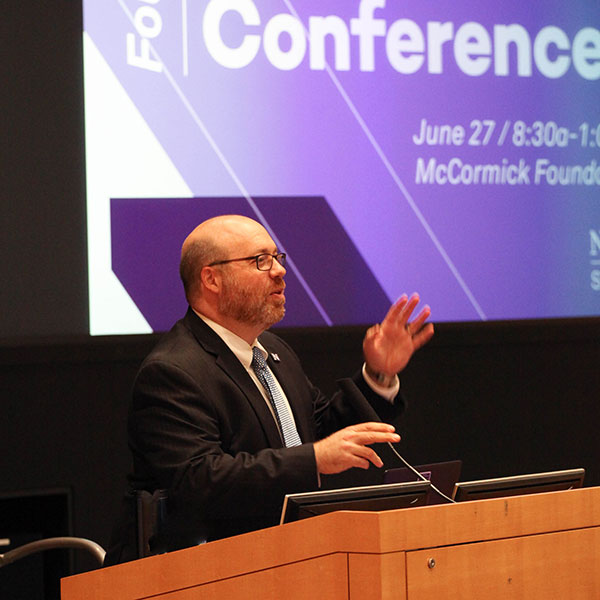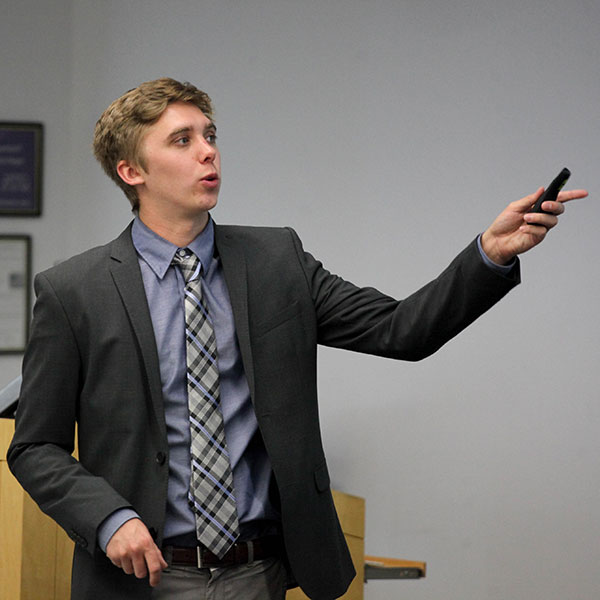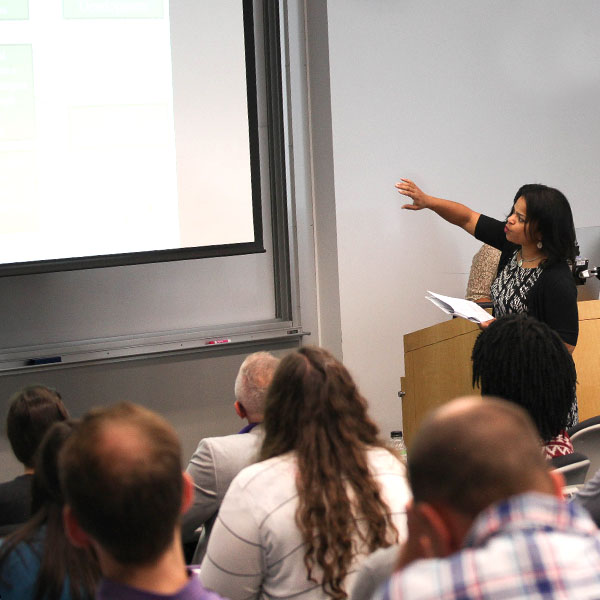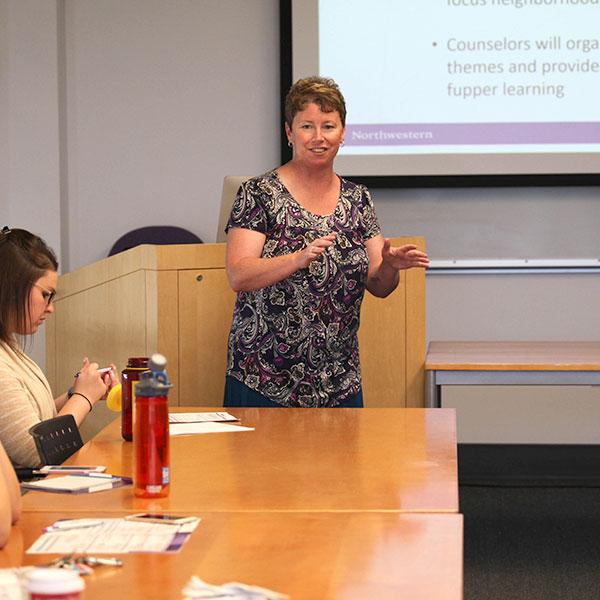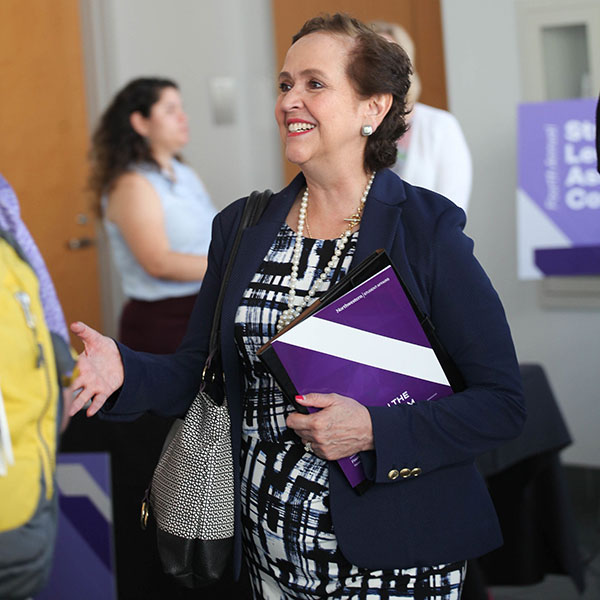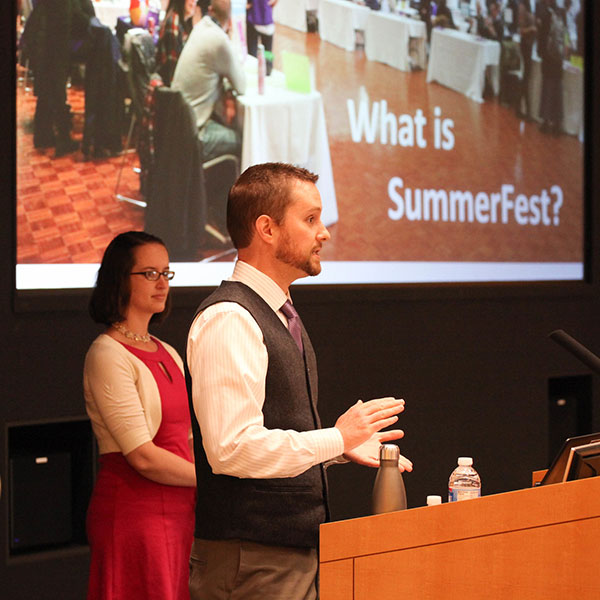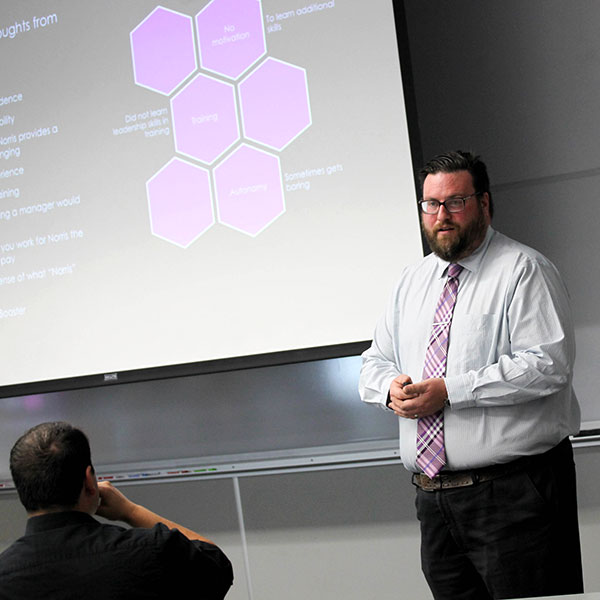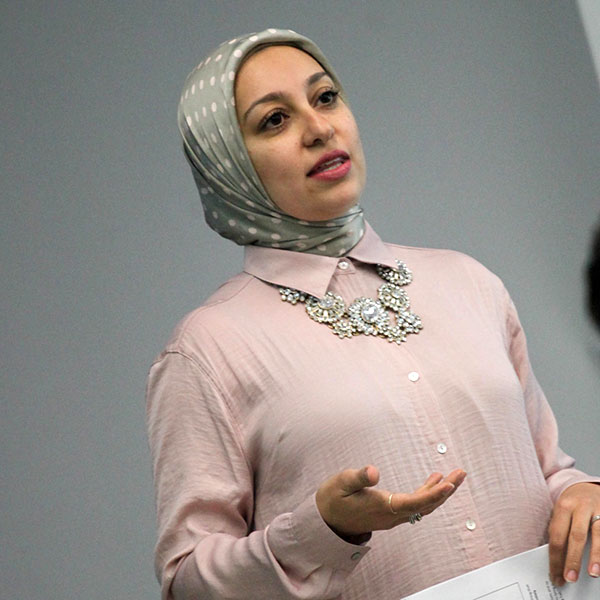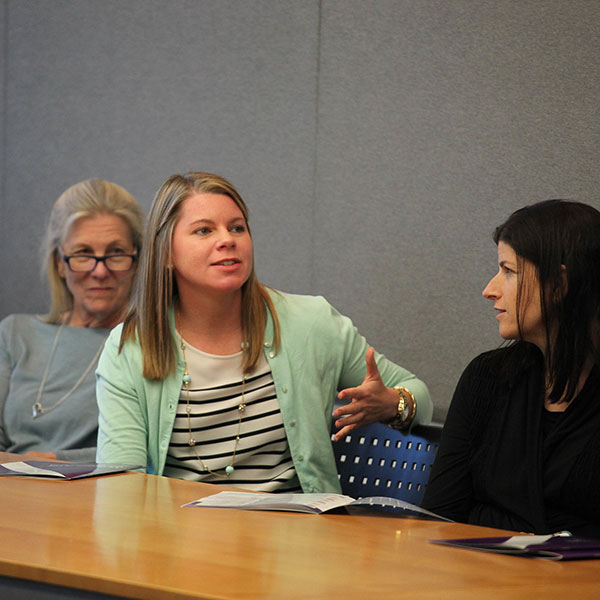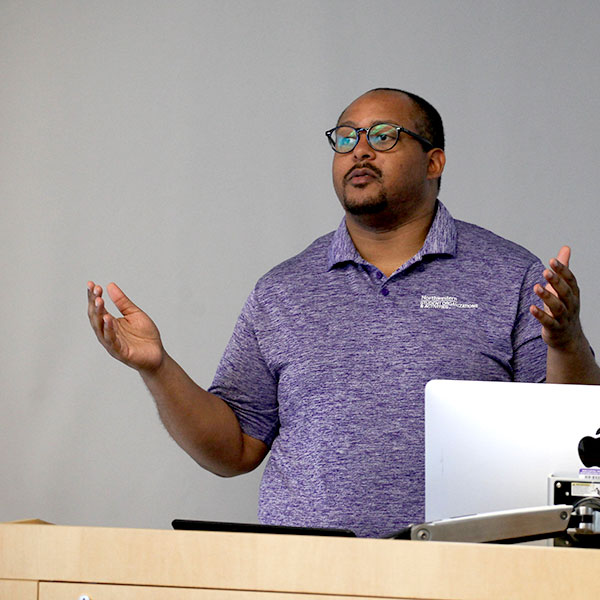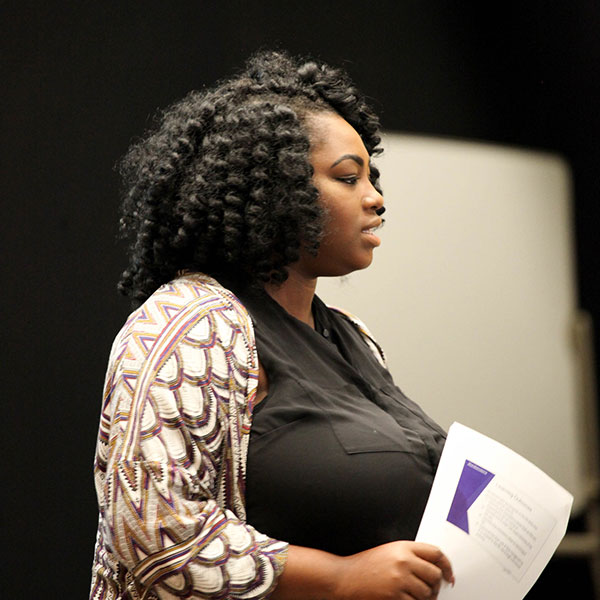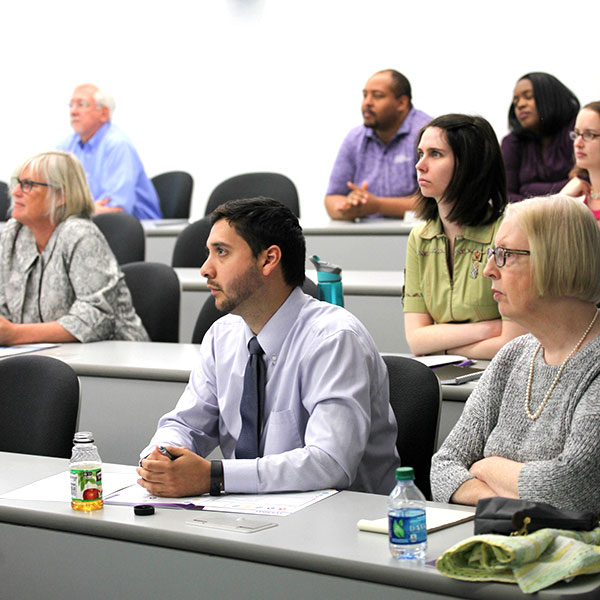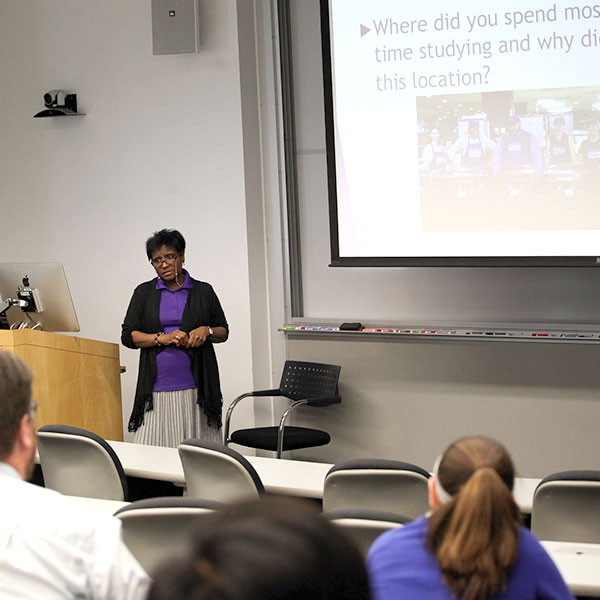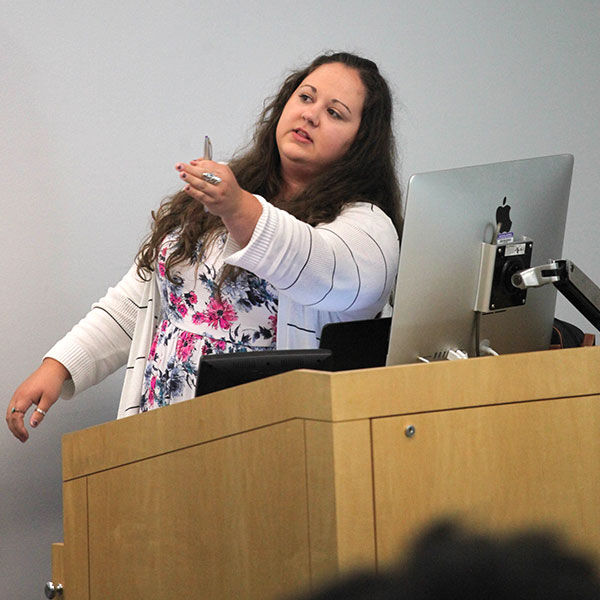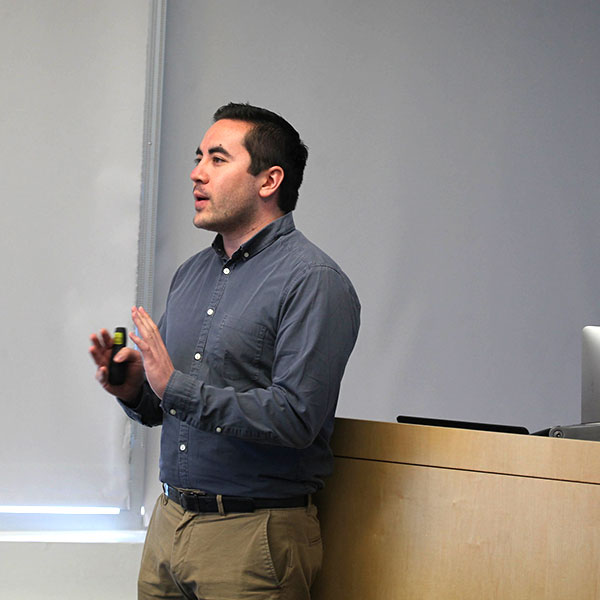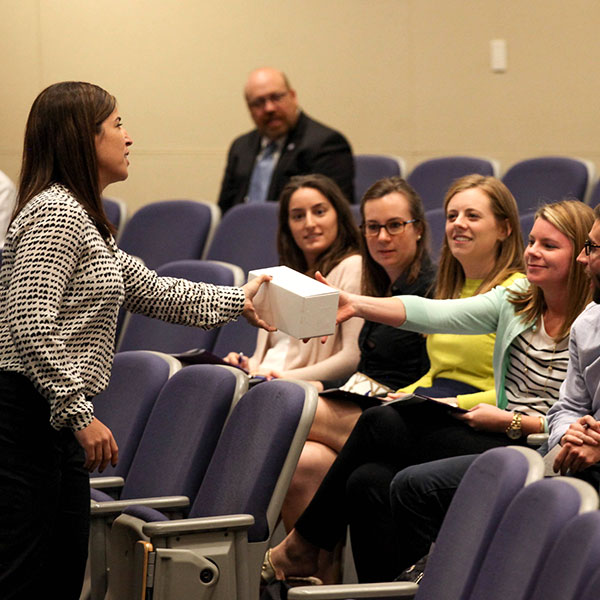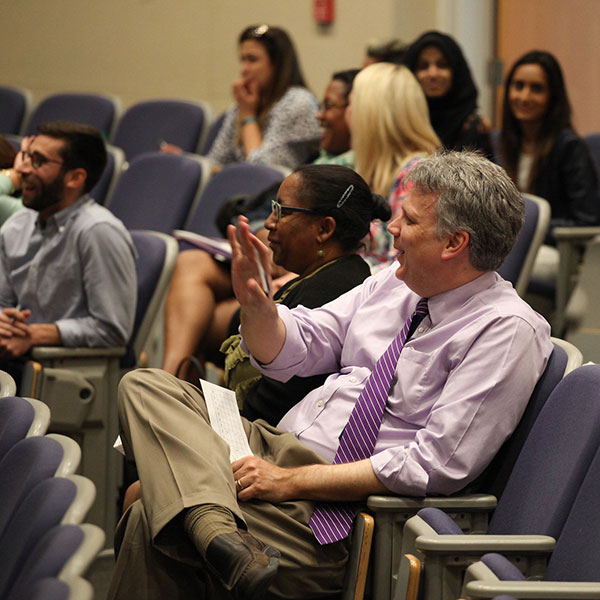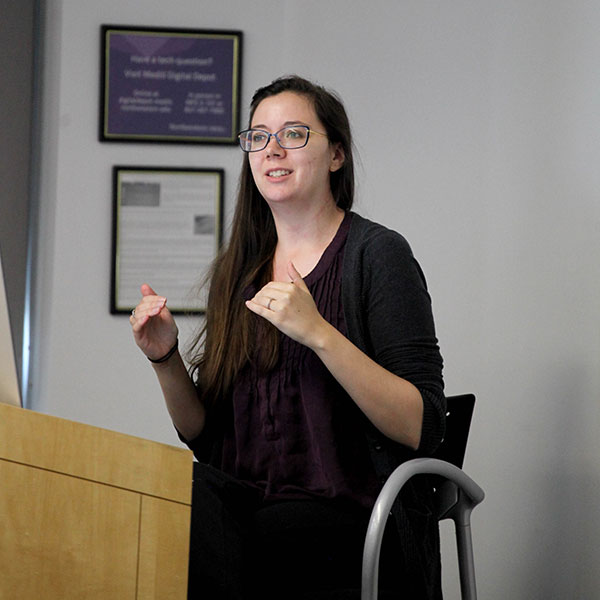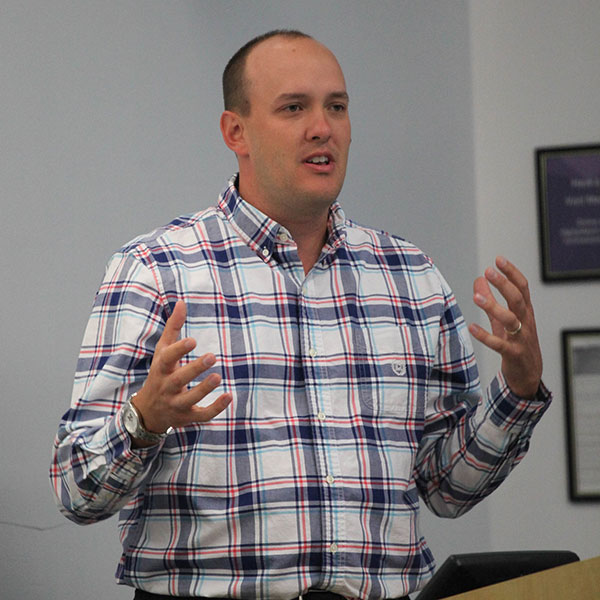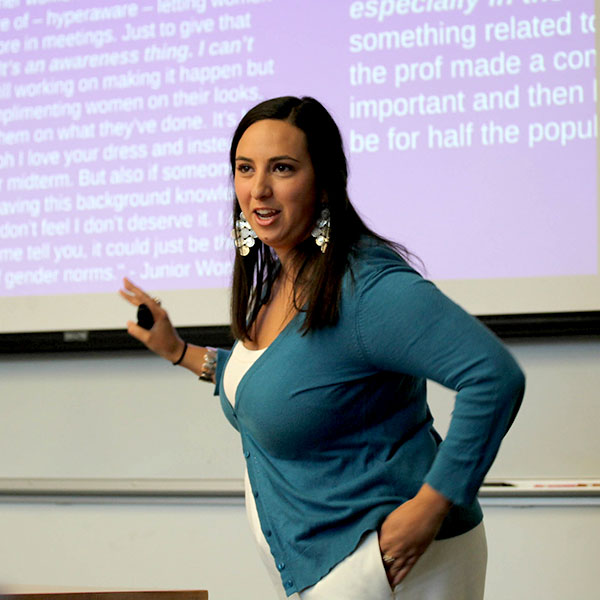2017 Student Affairs Learning Conference
Each Spring, departments showcase their student learning assessment projects at the Annual Student Affairs Learning Conference.
LEARNING IN THE CO-CURRICULUM
Fourth Annual Student Learning Assessment Conference | June 27, 2017- Learning in the Co-Curriculum Booklet (issuu)
- Fourth Annual Student Affairs Student Learning Assessment Conference Booklet(issuu)
- View Photos from the 2017 Student Learning Assessment Conference
STUDENT EMPLOYEE LEARNING: YEAR 4 AT NORRIS UNIVERSITY CENTER
Dominic L. Hoare Evans | Norris University Center
The purpose of this assessment is to better understand student employee learning through employment at the Norris University Center. We interviewed fourth-year employees and surveyed all employees in order to conduct a mixed-method assessment of the Norris Center’s learning outcomes for student staff.
This assessment is currently in its fourth and final year, and as such we have four years of data from many employees. The presentation will describe the development of activity level-learning outcomes for student employees. Specifically, the presentation will discuss methodology improvements aligned with new outcomes, data collection, themes, findings, and strategies for assessing learning for student employees.
Related Learning Outcomes: Cognitive & Practical Skills, Personal Skills, Interpersonal Competence
APIDA SOLIDARI-TEA
Christine Munteanu & Daphne Nwankpa | Multicultural Student Affairs
Solidari-Tea is a monthly discussion series that highlights topics relevant to the Asian Pacific Islander Desi American (APIDA) community. Topics include both APIDA-specific topics like APIDA history and the perpetual foreigner myth, as well as broader issues discussed through an APIDA lens such as the recent executive orders, dating and relationships, and allyship. Because student participation operates on a drop-in basis, student attendance varied as did their exposure to each of the topics.
This assessment utilized individual interviews with five participants to gauge students’ learning around their sense of racial identity and awareness of APIDA-related issues and resources. The presentation will cover the qualitative findings of these interviews and identify future program changes to improve the students’ learning experience.
Related Learning Outcomes: Personal Development, Social Responsibility, Cognitive & Practical Skills
REVAMPING COUNSELOR LEARNING IN THE FRESHMEN URBAN PROGRAM
Val Buchanan | Leadership & Community Engagement
The Freshmen Urban Program (FUP) is a pre-orientation experience for incoming students to engage with the Chicago and Evanston communities through service-learning. The program includes workshops with community activists, neighborhood explorations, service activities, and reflection. The FUP experience is led by 2nd through 4th-year Northwestern students. This year, counselors are responsible for working in groups to create a day plan to help “fuppers” gain appreciation for Chicago’s neighborhoods, history, and residents.
Counselors met throughout spring quarter to learn more about Chicago and Evanston, best practices in community engagement, and how to help incoming students process their experience through an equity lens. At the last meeting of spring quarter, counselor groups presented their day plans including how they would approach an introductory session for the day, descriptions of the community partners, and plans for other excursions and learning opportunities in the neighborhoods. This formative assessment utilized rubrics to document counselor learning in these areas and were used to provide feedback to each of the groups as well as inform next steps for counselor preparation.
Related Learning Outcomes: Personal Development, Interpersonal Competence, Social Responsibility
SUMMERFEST: ASSESSING STUDENT LEARNING ABOUT SUMMER OPPORTUNITIES
Tim DeBold & Kelsey Thompson | Residential Academic Initiatives, Student Affairs Assessment and Planning
SummerFest is an activity fair-style event aimed at helping students plan their summer break. Representatives from dozens of campus programs and departments are available to provide information about internships, research opportunities, summer classes, study abroad opportunities, and more. Building on a survey previously used to assess this event, specific learning outcomes were developed and assessed using both direct and indirect methods. Our findings showed that nearly 45% of students who responded to the survey learned about a new summer opportunity at SummerFest.
In addition, more than 80% felt that they were more aware of campus resources available to help them with their summer plans as a result of attending SummerFest. A majority of students (66%) were also able to describe the next steps they would take to move forward with their summer plans. These results indicated that SummerFest was a success in preparing students for a productive use of their summer break.
Related Learning Outcomes: Cognitive & Practical Skills
STUDENT SUPERVISORS AND PEER MENTORING IN NORRIS
Michael McKean | Norris University Center
Norris University Center employs over 200 students, 63 of whom are in leadership (supervisory) roles. These leadership roles involve training, mentoring, and disciplining of their peers. The purpose of this assessment project was to better understand how student supervisors develop cognitive and practical leadership skills through the peer mentorship experience. We interviewed Norris student supervisors to better understand what supervisory skills were being utilized to provide critical feedback to their staff.
This presentation will describe the development of student supervisors through activity-level learning as well as skills learned on the job. The data provide insights into how student employment prepares our student supervisors for employment after college and helps inform how we can continue to prepare future student supervisors for postgraduate success.
Related Learning Outcomes: Personal Development, Cognitive & Practical Skills
PEER INCLUSION EDUCATION: STUDENT LEARNING THROUGH PEER FACILITATION
Robert Brown & Noor Ali | Social Justice Education
Peer Inclusion Educators (PIE) is a program started by students, for students, dedicated to fostering an inclusive learning environment by addressing issues surrounding personal awareness of social identities, power, privilege, oppression, and social justice with peers at Northwestern. PIE facilitators lead specific and intentional programming for groups all over campus, including Greek houses, residential communities, and other student organizations.
Each facilitator attends an immersive two-day facilitation training, where they learn more about their own identities, how to engage in dialogue across difference, and social justice facilitation techniques. Our student learning assessment utilized a mixed methods analysis incorporating survey data, participant evaluation, and focus groups to uncover learning and growth fostered through peer facilitation.
Related Learning Outcomes: Cognitive & Practical Skills, Interpersonal Competence, Social Responsibility
REDUCING BARRIERS TO STUDENT ORGANIZATION ENGAGEMENT
Tracey Gibson-Jackson and Kourtney P. Gray | Student Organizations & Activities
Based on the feedback of first-year students and the reregistration data from 340+ student organizations over two years, roughly 85 student organizations identified as having some screening process, fee, or barrier for general/initial student engagement. These barriers negatively impact a significant number of our students. The Inclusive & Barrier Free Student Organization Engagement Initiative aimed to provide a support framework and engagement from Student Organizations & Activities staff to encourage organizations to remove barriers to participation.
The initiative developed a protocol to interact with student groups to learn more about their recruitment and engagement processes. This year-long process consisted of seeking student feedback and providing learning opportunities through round table events and individual meetings, advertisements, and support to student organizations that were identified as having barriers to student involvement. Student learning was measured through the one-on-one meetings and a year-end survey of the student organization leaders.
Related Learning Outcomes: Personal Development, Interpersonal Competence, Social Responsibility
ASSESSING THE RA SELECTION PROCESS: HOW STUDENTS SEEKING EMPLOYMENT LEARN AND RETAIN INFORMATION
Tenisia Adams & Amanda Mueller | Residential Life
Every year, Northwestern students undergo a selection process to become a Resident Assistant (RA) for Residential Life. In 2017, Residential Life took a hard look at what these future student leaders were learning about the RA position through the recruitment and selection process. This assessment project focused specifically on the 9 major job responsibilities of the RA role, the necessary steps to becoming an RA and the time required for the position.
The acquisition of this knowledge was evaluated at several points throughout the selection process, including prior to interviews, after the interviews, during the RA class, and after receiving their final placement for the next year. The assessment process included a combination of formative and summative assessments distributed across multiple touch points throughout the selection process. The assessment mechanisms and strategies were designed intentionally to demonstrate the longevity of student learning past the interview process. The data produced from these assessments will be utilized to inform future marketing campaigns and the overall selection process for the RA position.
Related Learning Outcomes: Personal Development and Cognitive & Practical Skills
EXAM RELIEF: LEARNING TO RELAX AND REDUCE STRESS
Debra A. Blade | Norris University Center
Norris Exam Relief is a program that provides food and activities for Northwestern students during finals week. The goal is to reduce stress and provide restorative activities to assist with learning. This program was started in 1981 by the Norris Browsing Library student supervisor with the intent to provide free food at one finals week study break. It has since evolved into a full week of food, activities and 24-hour access to Norris University Center. Each Fall, Winter, and Spring quarter, Norris provides four days of programming that provides free food every day and activities such as pet therapy, yoga, games, ice skating, massages, and arts and crafts.
This presentation will discuss how participating in Norris Exam Relief reduces stress from exam studying and what students learned about their knowledge of resources and skills for reducing their stress in the future.
Related Learning Outcomes: Personal Development, Cognitive & Practical Skills
COMPASS PEER MENTORS
Zoey Meyer-Jens | Student Enrichment Services
Compass is a year-long peer mentoring program that connects first-year students who identify as low-income and/or first-generation with trained 2nd through 4th year mentors. Mentors host one-on-one and small-group meetings, attend social events and workshops, and generally help first-year students learn how to successfully navigate the Northwestern experience and develop lasting relationships.
The mentors receive intensive training in the beginning of the year as well as ongoing training throughout the year from Student Enrichment Services staff as well as campus partners. Utilizing interviews, this assessment focused on the skills and knowledge gained by the mentors such as how to foster community among students and strategies for facilitating small and large-group conversations.
Related Learning Outcomes: Personal Development, Interpersonal Competence, Cognitive & Practical Skills
ADVISING WITH PURPOSE: A LEARNING EXPERIENCE FOR THE INTERFRATERNITY COUNCIL EXECUTIVE BOARD
Charles Andrean & Hana Johnson | Fraternity & Sorority Life
Each year, the Interfraternity Council (IFC) chapter presidents elect nine students to serve on the IFC Executive Board. These nine men serve in distinct leadership roles for one-year terms, focused on anything from recruitment to membership development to risk management. As co-advisors, we sought to bring increased intentionality to our advising of this board through the creation of an educational framework. Our primary goals were to develop students’ understanding of their sense of self and their role as members of a community.
The framework engaged students weekly, through 30-minute sessions, covering topics such as vulnerability, identity, power and privilege, active citizenship, and leadership. Student learning was assessed through pre- and post- testing. Related Learning Outcomes: Personal Development, Interpersonal Competence, Social Responsibility
ASSESSING THE IMPACT OF SMALL-GROUP ORIENTATION FOR CAREER SERVICES
Rachel Taylor | Northwestern Career Advancement
Orientations serve as first encounters with something new for the purpose of information giving. In efforts to ensure that students admitted to the Kellogg Certificate Program for Undergraduates (CPU) engage in the career development and planning process, CPU hosts small group orientations concentrated exclusively on career services. Orientation is facilitated in small groups of 4-8 students meeting for a 60-minute timeframe.
The orientation consists of introductions, content presentation and group discussion as a means for educating students about career support/ resource offerings, understanding recruitment timelines, and initiating career planning. Post orientation, each attendee completes an information sheet that collects both quantitative and qualitative data related to the goals and learning outcomes of the session.
Related Learning Outcomes: Cognitive & Practical Skills, Personal Development
SAIT STUDENT EMPLOYEES
Natalie Paulus | Student Affairs Information Technology
Student Affairs Information Technology (SAIT) employs between 6 and 10 undergraduate students each year. Throughout their time with SAIT, student employees gain technical, communication, and teamwork skills through training, on-the-job experience, and regular check-ins with professional staff. This assessment focused on areas related to the division’s student employee learning outcomes.
In particular, it assesses SAIT student employee learning of professional work habits such as time management skills, use of professional email and phone communication skills, and their ability to provide effective customer service by completing tasks in a timely matter and reaching out for assistance when needed.
Related Learning Outcomes: Cognitive & Practical Skills
INTEGRATING TECHNOLOGY TO SUPPORT INDEPENDENT NOTETAKING PRACTICES FOR STUDENTS WITH A PEER NOTETAKING ACCOMMODATION
Jim Stachowiak | AccessibleNU
A peer notetaker is an accommodation for roughly 170 AccessibleNU students. However, this accommodation is often not very helpful for many reasons including: long turnaround times in finding a peer willing to provide notes; peer notes not fitting the learning/notetaking style of the student receiving them; and peer notes not meeting students’ quality expectations. To alleviate these issues, AccessibleNU began piloting two technologies (Livescribe Echo Smartpen and Sonocent Audio Notetaker) that promote note-taking independence by combing written/typed notes with recorded classroom audio. For the pilot project, 30 interested students met with AccessibleNU to choose and receive an orientation on one of the technological tools. After using the technology in class for at least a quarter, the students participated in an interview to share what they learned about using note-taking technology effectively.
They also reflected on how using the technology benefited them in relation to their condition and analyzed how their approach to class changed when using the technology versus taking notes without technology/receiving peer notes. Results from student interviews have affirmed the decision to increase efforts in promoting notetaking technology, and have helped shape initial orientation and follow-up support for students using the Smartpen and Sonocent Audio Notetaker in the future.
Related Learning Outcomes: Personal Development, Cognitive & Practical Skills
EMPOWERING WOMEN IN LEADERSHIP: DEVELOPING LEADERSHIP EFFICACY THROUGH A COHORT-BASED EXPERIENCE
Adrian Bitton | Leadership & Community Engagement
Women in Leadership is a six-week, cohort-based learning community for undergraduate women. Each week the cohort comes together to explore the intersections of gender and leadership through experiential activities, intentional dialogue, and reflection. The series begins by exploring multiple identities and how those identities inform who we are as leaders and how others perceive our leadership. Then the cohort explores how we were socialized around both leadership and gender and how that informs the unique challenges of women in leadership. Finally, we explore tangible ways to address negative trends and empower women in leadership.
The Women in Leadership program uses both formative and summative assessment strategies to inform future cohort session content and structure. The program also uses mixed methods to gain measurable quantitative comparison data among the participants along with more in-depth qualitative interviews to better gauge learning and understand impact.
Related Learning Outcomes: Personal Development, Interpersonal Competence, Cognitive & Practical Skills
